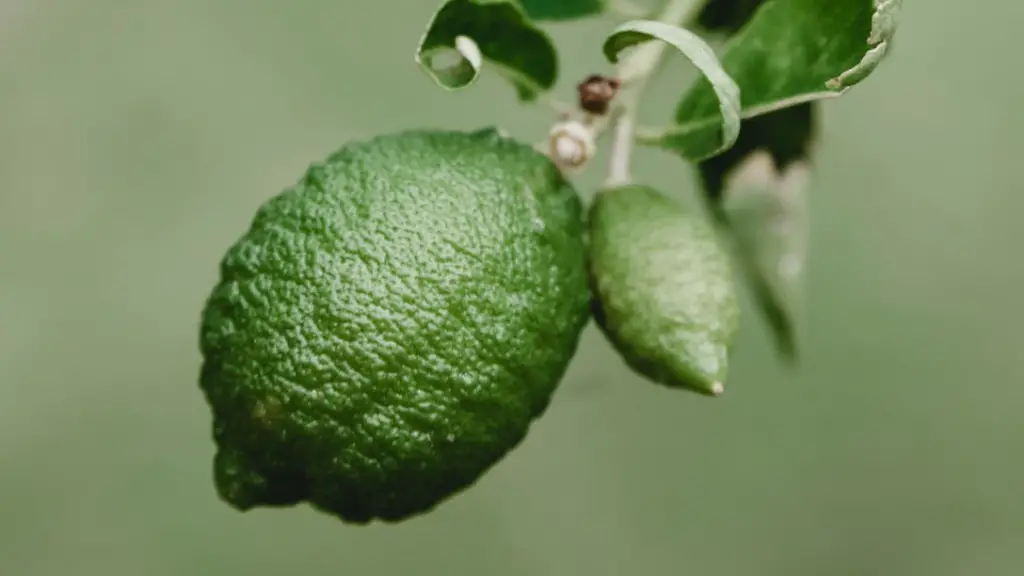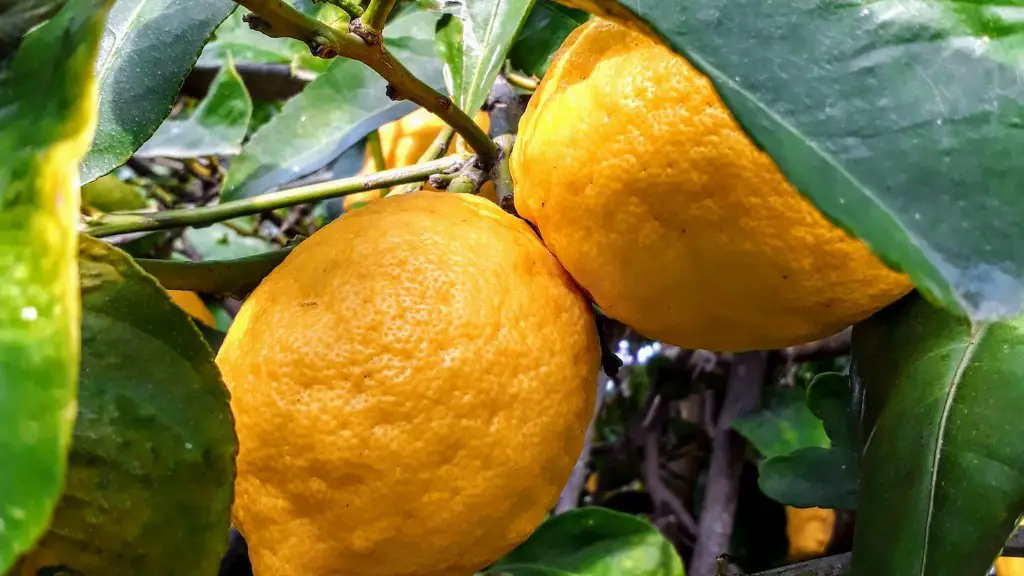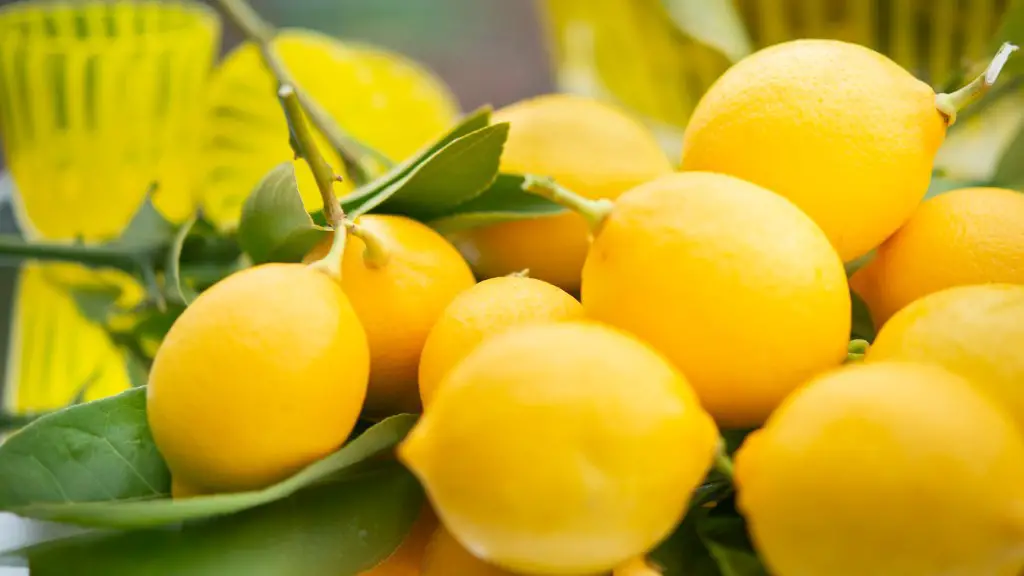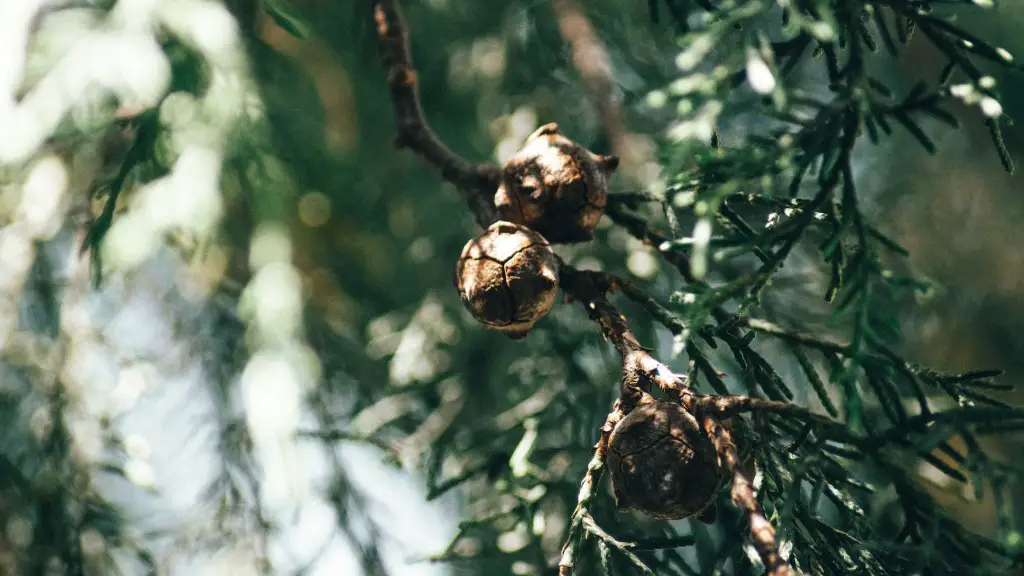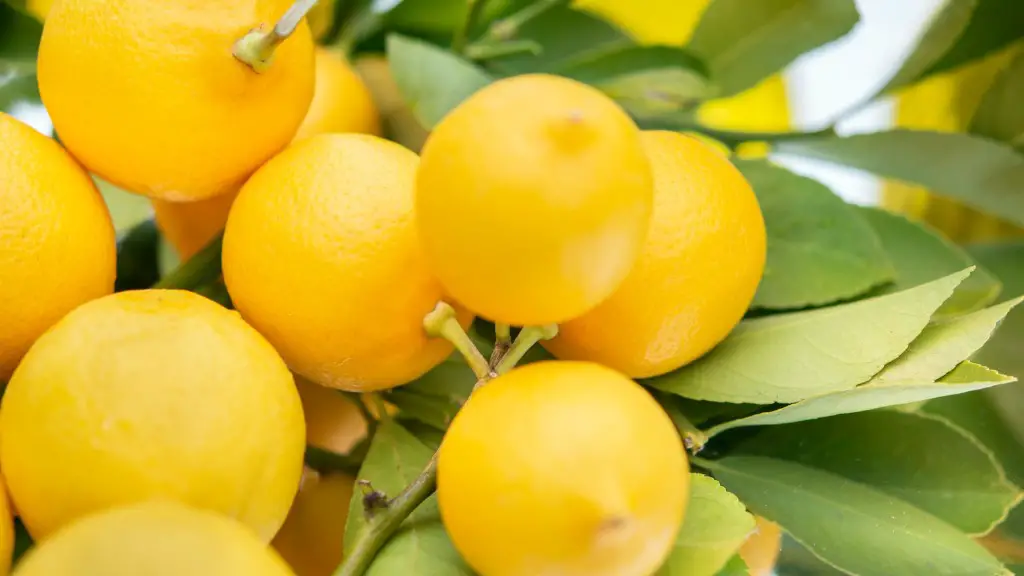Growing lemon trees to produce fruits can be a rewarding experience. With the right care and attention, your lemon tree can produce an abundance of sweet and zesty fruits. Here’s how to make your lemon tree bear fruit quickly and efficiently:
Firstly, ensure you have a suitable tree for the environment. Lemons love warm and sunny climates, so if you live in a more temperate area, make sure to select a cultivar that can handle lower temperatures. Choose a variety that is well suited to your climate and soil, and pay special attention to your planting instructions.
Next, make sure to provide the right amounts of water and fertilizer. To get the most from your lemon tree, water it often enough to keep the soil evenly moist without making it overly wet. Lemon trees also need a balanced fertilizer applied every two weeks to provide additional nutrients and encourage consistent growth. Furthermore, add a layer of mulch around the base of your tree to keep the soil moist.
Thirdly, prune your lemon tree regularly. Pruning helps your lemon tree better absorb sunlight and increases its airflow. It also improves the structure of the tree, allowing it to take in more nutrients while at the same time removing branches and leaves that are blocking essential sunlight.
Fourthly, inspect your lemon tree for pests or diseases during the growing season. Although mild and cool climates may not cause too many pest issues, hot weather can cause a rapid spread of various fruit pests. Regularly check for any pest infestation and immediately treat the tree with insecticidal soap or other pest control measures.
Fifthly, ensure your lemon tree gets plenty of direct sunlight for a healthy growth. Place it in a sunny spot and make sure it gets at least 6 to 8 hours of direct sunlight every day. If you live in a hot climate, you may need to also provide it with a bit of shade during the hottest hours of the day.
Finally, be mindful when harvesting your fruits. Too early or too late collection of the fruits not only affects their taste and quality, but also affects the health of the tree itself. Monitor the fruits on your lemon tree closely and harvest them at just the right time to get the best results.
Taking Care of your Lemon Tree
Growing a lemon tree is a long-term investment that requires frequent maintenance and care in order to keep it healthy and productive. Here’s what you should do to keep your tree in top condition:
One: Don’t forget to give your tree a deep watering every few days or so, allowing the water to penetrate deeply into the roots. This helps the tree to grow deeper and wider, enabling it to absorb more nutrients from the water and soil.
Two: Make sure to add a layer of mulch around your tree to avoid evaporation, protect the soil and provide additional nutrients. This will also help to keep weeds and pest away from the tree.
Three: Add fertilizers to your tree twice a month during the active growing season to feed it with necessary nutrients, supporting the growth of new fruits and providing the tree with a healthy, balanced diet.
Four: Prune the tree regularly, removing leaves and dead branches that are blocking sunlight or competing with the tree for nutrition. This will also help to improve the airflow within the canopy, promoting a healthy growth and keeping pest and diseases away.
Five: Check your tree regularly on pest and diseases, as hot weather can cause a rapid spread of various fruit pests. Lookout for any signs of pest infestations and immediately treat the tree with insecticidal soap or other pest control measures.
Controlling the Soil pH
Having the right soil pH is essential for the best growth of your lemon tree. The soil pH should be slightly acidic for optimum health, so make sure to test regularly and adjust the pH as needed. Most soils are too alkaline for lemon trees, so you may need to add some sulfur or use acidic fertilizers to reduce the alkalinity.
One: Test your soil’s pH level using a soil pH test kit. Most kits will provide the results within minutes, so you’ll know the exact pH level and can take the necessary measures.
Two: If your soil pH is too high, spread some sulfur around the base of your tree and mix it into the soil. This will help to lower the pH and make the soil more acidic. You can also add organic materials such as peat moss or compost to raise the acidity.
Three: If your soil pH is too low, you can use lime or wood ash to raise its pH levels. Use a shovel to spread the material over the surface of the soil and work it into the top few inches. It’s important to stay within the desirable range of pH, so make sure not to add too much.
Four: Aim to keep your soil pH between 6.0 and 6.5, which is optimal for most citrus fruits. If you must, you can adjust it to upwards of 7.0, but never let it go below 5.5, as too acidic soil will make it hard for your tree to absorb the necessary nutrients.
Five: Keep in mind that the soil pH can fluctuate over time. Test it every few months and adjust it according to the results. You can also use soil amendments such as gypsum or iron sulfate to raise or lower the soil’s pH levels as needed.
Protecting from Frost
If you live in a cool climate, it’s important to take the necessary measures to protect your lemon tree from frost. Here’s how to make sure your tree will get through the cold winters without any damage:
One: Move your lemon tree to a protected area during the cold winter months. If you don’t have a protected area, you can also wrap it with a tarp to provide some additional protection from the frost and wind. This will help to keep the coldest temperatures away from the tree and keep it safe.
Two: Cover your tree with a cotton or fleece blanket or cloth. This will provide an additional layer of protection against the cold temperatures and keep the wind at bay. Be sure to cover the whole tree, including the roots, and leave it on until the temperatures begin to warm up.
Three: In cold areas, it’s a good idea to use a pot to grow your lemon tree. Pots are much easier to move indoors when temperatures drop than trees in the ground, and they will also provide extra insulation and protection from the frost.
Four: Make sure your tree has plenty of water during the winter months. Drought is one of the major causes of frost damage in citrus trees, so make sure to water your tree often and deeply to keep it healthy.
Five: If you need to keep your tree warm, you can also use a portable heater or low wattage electric light bulb to provide additional heat. Make sure to place the heater about two to three feet away from the tree and be careful not to overheat it.
Limiting Fertilizer Usage
Fertilizing your lemon tree is important for its growth and health, however it is important to not over-fertilize it. Here’s what you need to keep in mind when it comes to fertilizing your tree:
One: When it comes to applying fertilizer, it’s important to use the right amounts. Over-fertilizing your tree can create an imbalance of nutrients and lead to poor growth, which will inhibit its ability to produce fruit.
Two: Make sure to use organic fertilizers, such as compost or manure, to fertilize your lemon tree. These fertilizers are more natural and will provide a balanced mix of nutrients to the soil without any adverse effects.
Three: Use a balanced fertilizer every two weeks during the active growing season. Follow the instructions to determine the right amount and frequency for fertilizing your lemon tree.
Four: If possible, add a layer of mulch around your lemon tree, as this will help to retain moisture and provide additional nutrients to the tree. It will also help to keep weeds away and reduce the amount of fertilizer needed.
Five: Be mindful not to apply too much fertilizer at once, as this may burn the tree’s roots or lead to an imbalance of nutrients. Start with a small amount of fertilizer and gradually increase it until you find the right balance.
